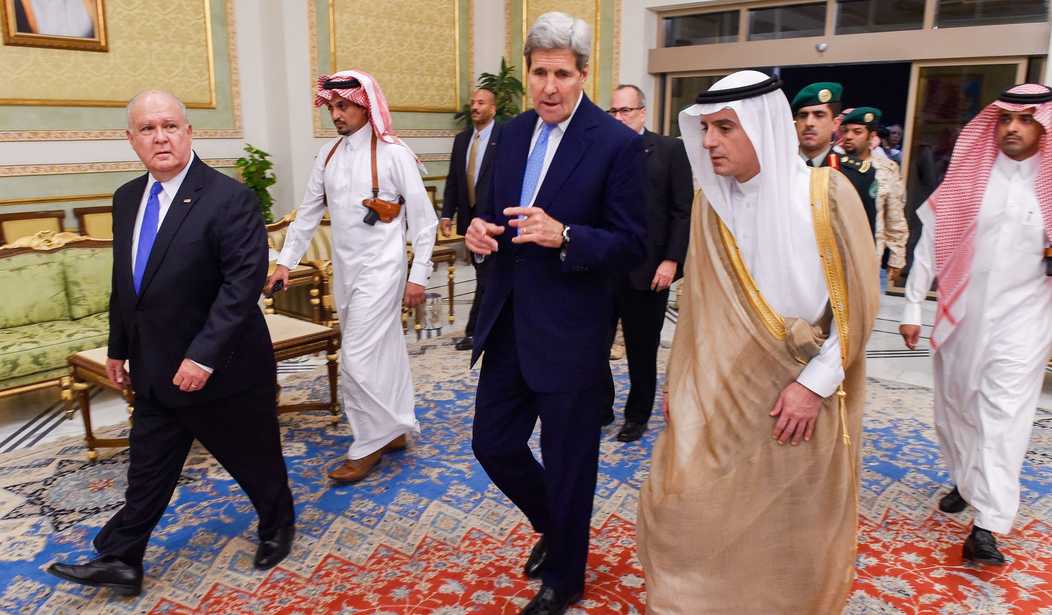The foreign minister of Saudi Arabia says the fact that Iran once tried to have him assassinated has nothing to do with his deep skepticism of the nuclear deal.
Adel al-Jubeir, the U.S.-educated longtime ambassador to Washington, was targeted in a 2011 plot to bomb a restaurant in D.C. along with the Saudi and Israeli embassies, U.S. officials said.
He took over the foreign minister post last year, replacing Saud al-Faisal, who had served in the job for four decades.
Al-Jubeir told CNN on Tuesday that the kingdom’s pressing concern now that Implementation Day was reached “is what Iran will do with the windfalls in terms of additional revenue it generates as a result of the lifting of some of the sanctions.”
“Our concern is that that will be used to support terrorism and to spread instability in the region. Our concern is that it will not be used to develop the country and improve the lot of the Iranian people who desperately need to develop their country,” the foreign minister said.
Pressed on whether Saudi Arabia is developing their own nuclear option, Al-Jubeir stressed there are “two things we do not negotiate over, our faith and our security. Saudi Arabia will do whatever it takes in order to protect our nation and our people from any harm. And I will leave it at that.”
“…We don’t have confidence in Iran. We have confidence in the United States.”
Al-Jubeir said what’s needed for Iran to restore diplomatic relations with the Saudis is “very simple.”
“Iran should seize interfering in the affairs of the countries of the region. Iran should cease to support terrorism. Iran should cease to assassinate diplomats and blow up embassies. Iran should cease to support militias whose objective is to destabilize countries in the region. Iran should cease its policy of negative propaganda in the region,” he said. “Other than that, things should be fine with Iran.”
And despite the assassination plot, he insisted that “this is not personal.”
“This is not about me. This is about my nation, this is about my region. This is about a country that is aggressive in its policies that has — had no inhibitions in using terrorism. This is a country that occupied the American embassy in Iran for 444 days, including taking American diplomats hostage,” Al-Jubeir said.
“This is a country that has blown up the American embassy in Beirut, killed the U.S. Marines at Beirut International Airport, killed French soldiers in Lebanon. This is a country that has blown up embassies, that has assassinated diplomats, including three Saudi diplomats, in Thailand. This is a country that’s implicated in the Khobar Tower bombings. In fact, it’s planned it and its officials directed it, and the people who perpetrated this crime moved to Iran and have been sheltered by Iran for the past 20 years,” he continued.
“This is a country that harbors the leadership of al-Qaeda, including one of Osama bin Laden’s sons. This is a country that has no inhibitions about engaging or supporting terrorism, death and destruction. This is a country that has provided troops and recruited troops in a sectarian war in Syria that has allowed Bashar al-Assad to murder more than 250,000 of his people and to render 12 million of them refugees or displaced persons. So if you put all this together, that’s where the problem is, that’s where the lack of confidence is. It’s not about me.”
Al-Jubeir stressed that Shiite Sheikh Nimr al-Nimr, whose execution touched off the latest crisis between the kingdom and Iran, was “not a religious scholar, he’s a terrorist.”
“He’s as much of a religious scholar as Osama bin Laden was. Nimr al-Nimr was a man who recruited, he justified, he funded, he equipped, he plotted and he engaged in terrorist attacks that left a number of security personnel dead. He was caught in the middle of a raid, and so he was jailed. He went to — he was sent to court. The decision went from the courts to the appellate court to the Supreme Court. He was found guilty and he was punished, and that’s the end of it,” he said.
On whether beheading is a cruel, ISIS-like method of execution in Saudi Arabia, Al-Jubeir said “people tend to be too superficial.”
“We have the death penalty. So does the United States,” the foreign minister said. “If we were to use the same methods that the United States uses and then tomorrow ISIS decides to use those same methods, does that mean that they got it from us? Does this mean we have to change our method again?”









Join the conversation as a VIP Member